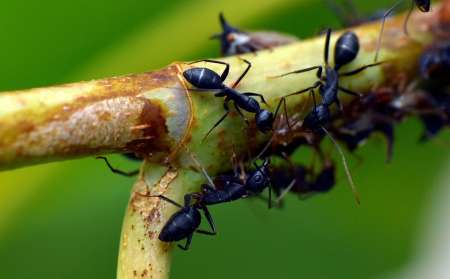Gabrielle Union recently opened up about a deeply challenging experience her family faced in 2023 when her husband, the retired NBA star Dwyane Wade, underwent surgery to remove a tumor from his kidney, which was later confirmed to be cancerous. Speaking on an episode of the “Today” show, Union shared how Wade’s diagnosis and subsequent health journey profoundly impacted their lives. The situation was not only daunting for Wade but also took a toll on their marriage and family dynamics. Union highlighted the emotional struggles Wade faced, noting that he sometimes found it difficult to embrace vulnerability during his recovery. She reflected on the challenges of navigating this period, emphasizing the importance of giving and receiving grace during such trying times.
Wade himself provided detailed insights into his health ordeal during an episode of his podcast, “The Why with Dwyane Wade.” He revealed that his journey began with a routine checkup, where he mentioned experiencing stomach issues and a less powerful urine stream. These symptoms prompted his doctor to recommend a full-body scan, which led to the discovery of a tumor on one of his kidneys. Wade explained that his medical team advised against a biopsy due to potential risks and instead recommended surgery. After consulting with multiple specialists who concurred with the initial diagnosis, Wade underwent the procedure in December 2023, during which 40% of his kidney was removed. Thankfully, the surgery was successful, and the tumor was confirmed to be cancerous, a revelation that underscored the importance of timely medical intervention.
For those unfamiliar with kidney tumors, it is essential to understand that they are abnormal tissue growths that can be either benign or malignant. According to the Cleveland Clinic, approximately 75% of kidney tumors are cancerous, with larger tumors being more likely to spread and grow rapidly. The Mayo Clinic further explains that cancerous cells in the kidney can form tumors that invade healthy tissue and potentially metastasize to other parts of the body. This information is crucial for understanding the gravity of Wade’s situation and the necessity of the treatment he received.
Many individuals with kidney tumors may not experience noticeable symptoms, especially in the early stages. However, when symptoms do arise, they can include blood in the urine, pain in the lower back, loss of appetite, unexplained weight loss, fever, anemia, or discomfort between the hips and ribs. These signs can often be subtle, making regular health checkups vital for early detection. Wade’s case serves as a reminder of the importance of vigilance and proactive health management, particularly for those with risk factors such as smoking, obesity, or a family history of kidney cancer.
While there is no guaranteed way to prevent kidney cancer, certain lifestyle choices can reduce the risk. The Mayo Clinic suggests that maintaining a healthy diet rich in fruits and vegetables, exercising regularly, avoiding smoking, limiting alcohol consumption, and keeping a healthy weight can all contribute to overall wellness and lower cancer risk. Early detection and treatment are critical, as they significantly improve outcomes for those diagnosed with kidney cancer. Wade’s experience underscores the value of listening to one’s body and seeking medical advice when something feels amiss.
In conclusion, Gabrielle Union and Dwyane Wade’s journey through his cancer diagnosis and treatment is a powerful reminder of the importance of health awareness and the resilience of the human spirit. Their story highlights the emotional and physical challenges faced by patients and their loved ones, as well as the critical role of timely medical intervention. As Wade expressed gratitude for undergoing the surgery that likely saved his life, his experience serves as a testament to the importance of regular checkups and heeding medical advice. Everyone can learn from Wade’s story, emphasizing the need for vigilance and the significance of maintaining open communication with healthcare providers. By sharing their experiences, Union and Wade continue to inspire and educate, reminding us all of the importance of prioritizing our health and well-being.









